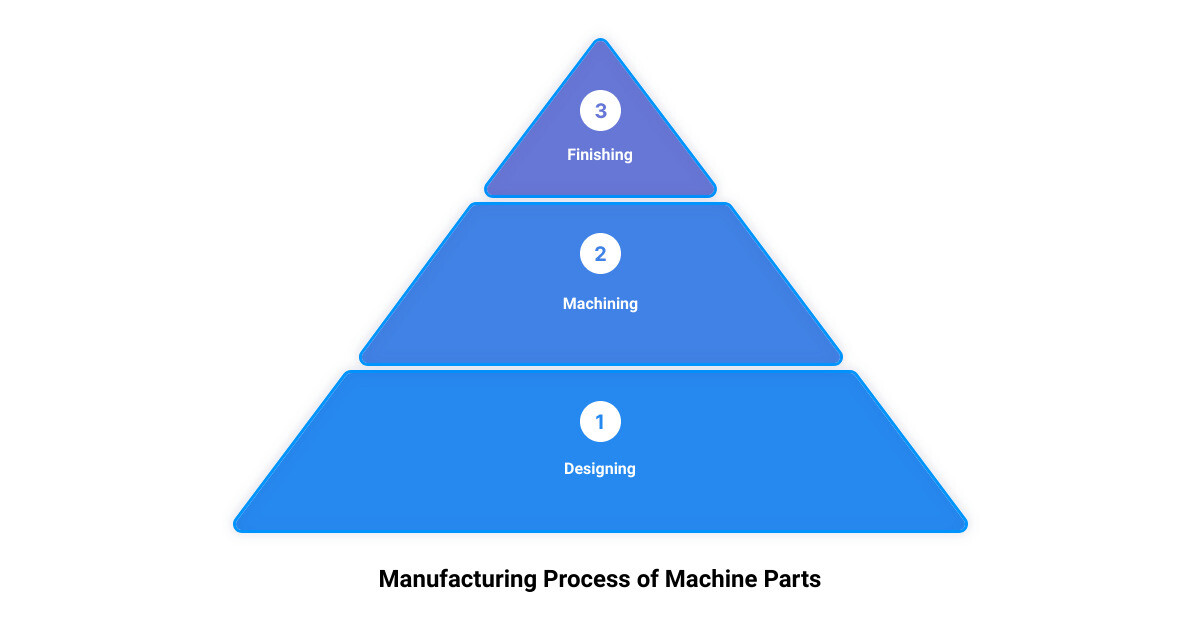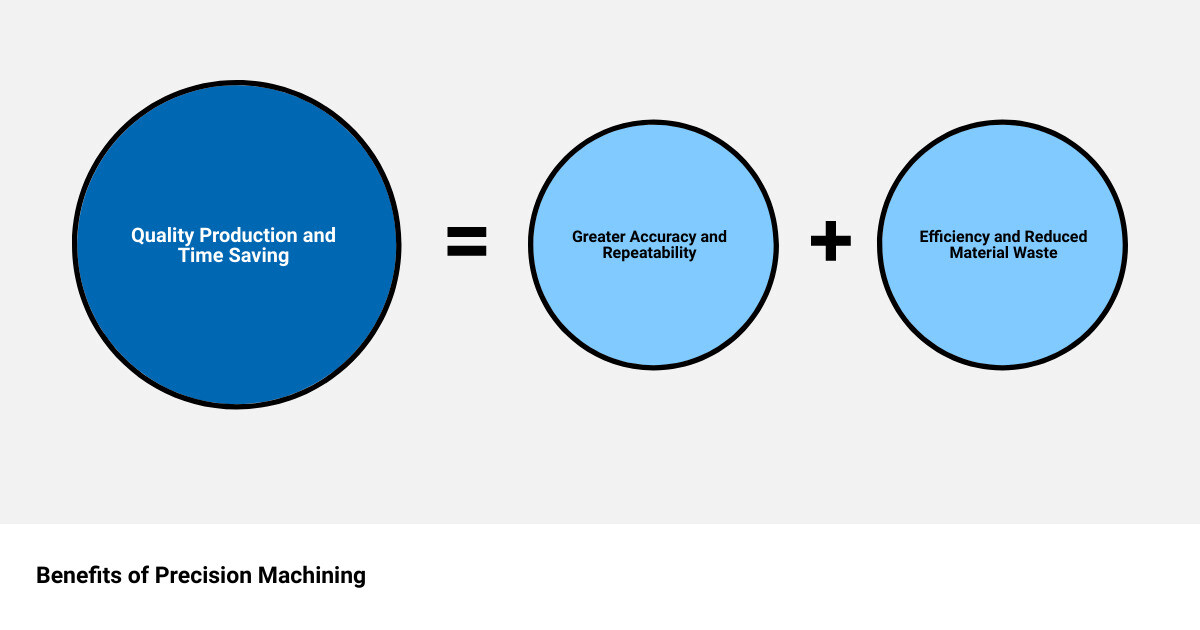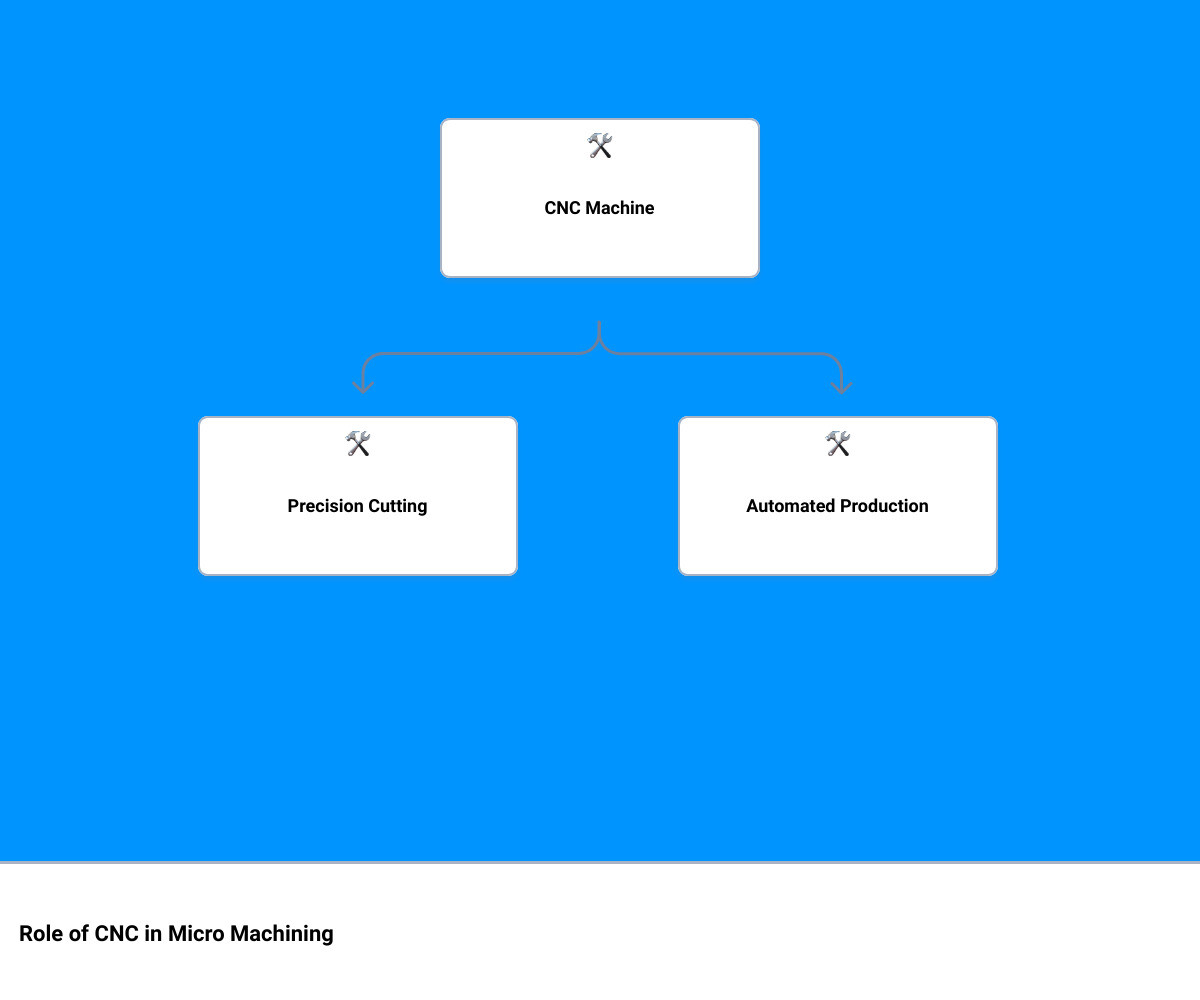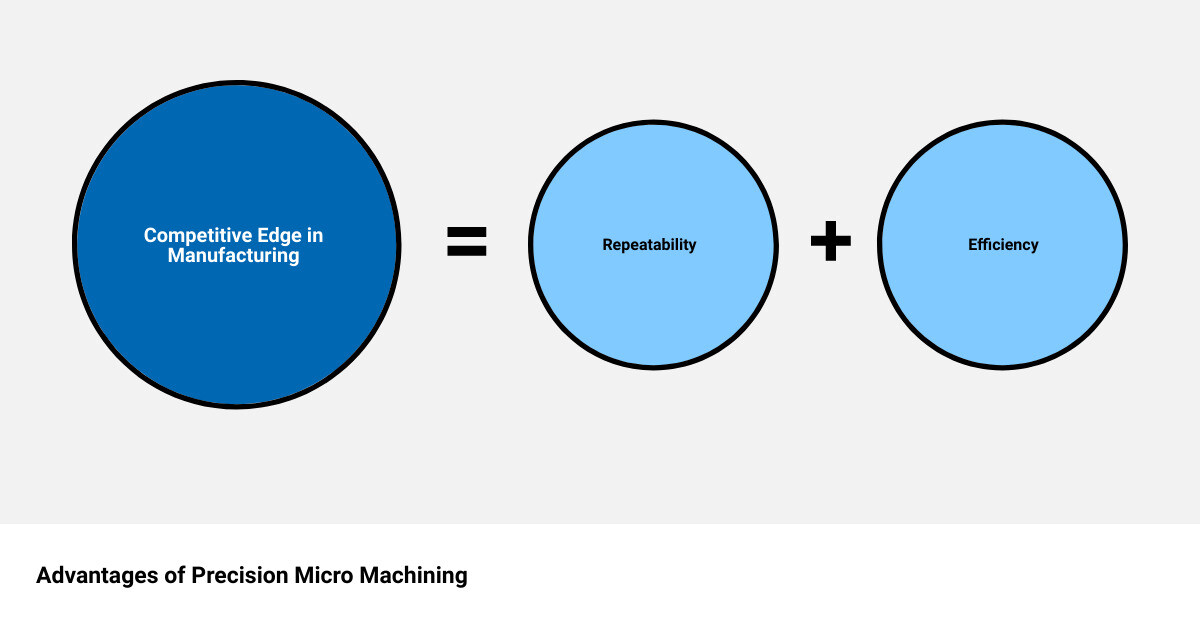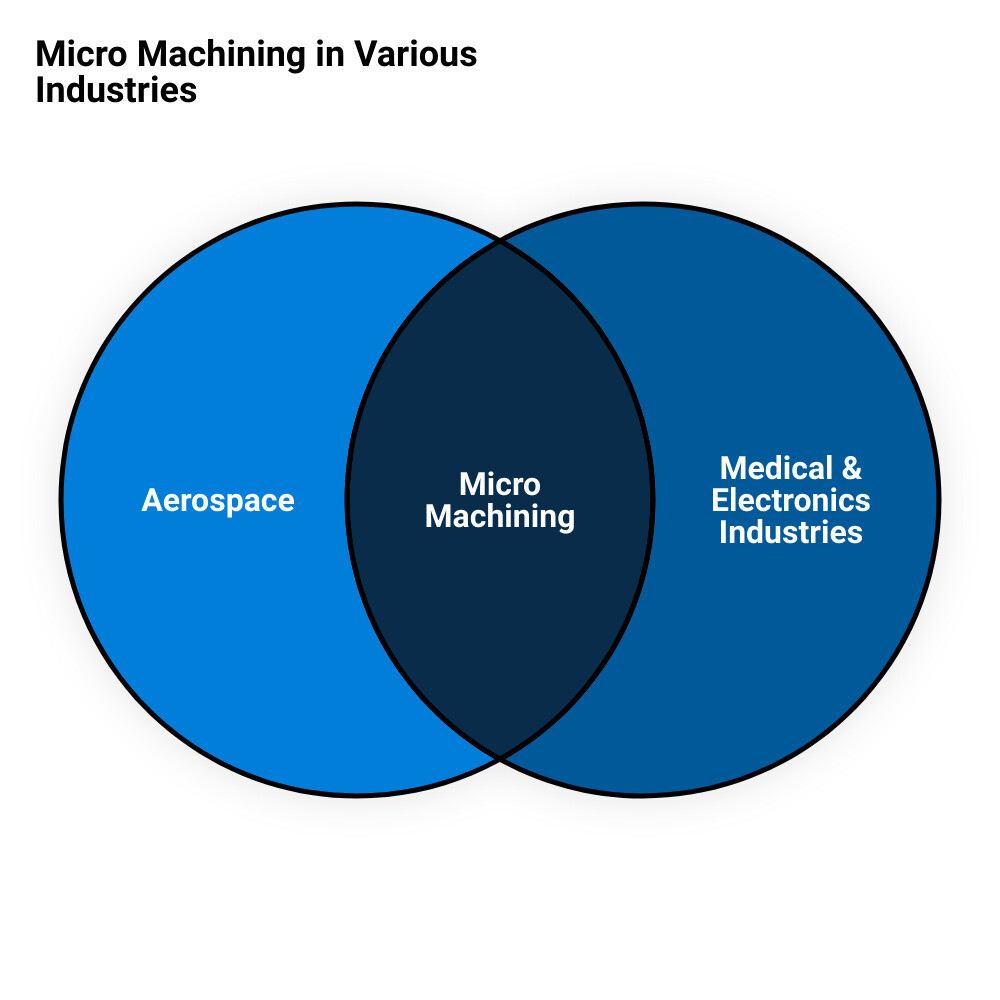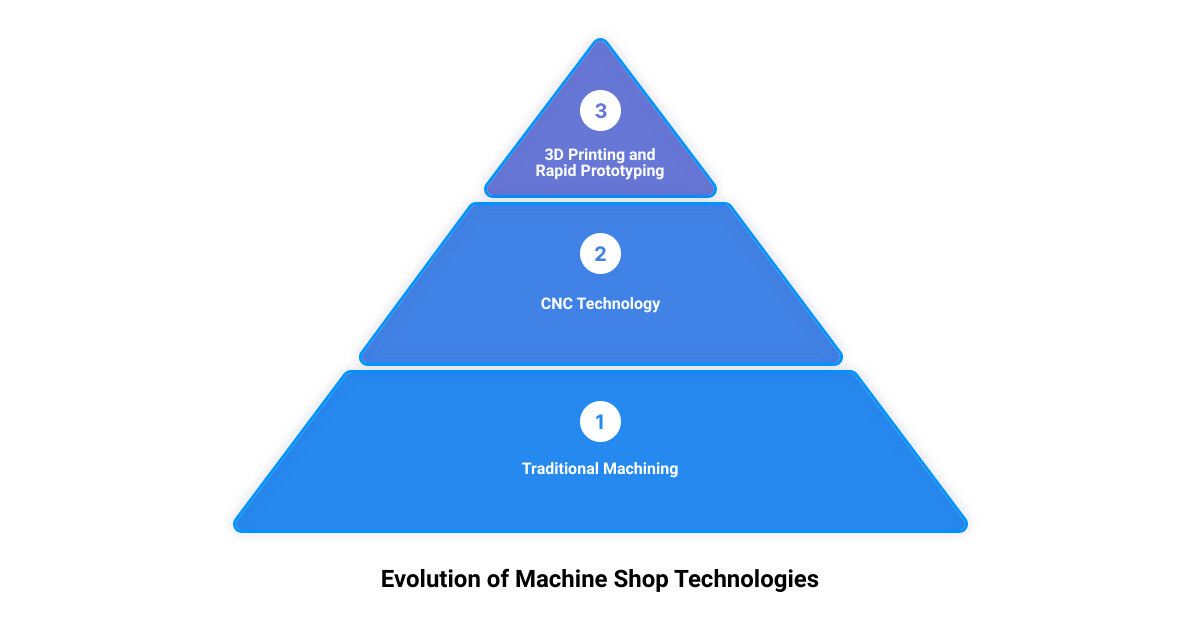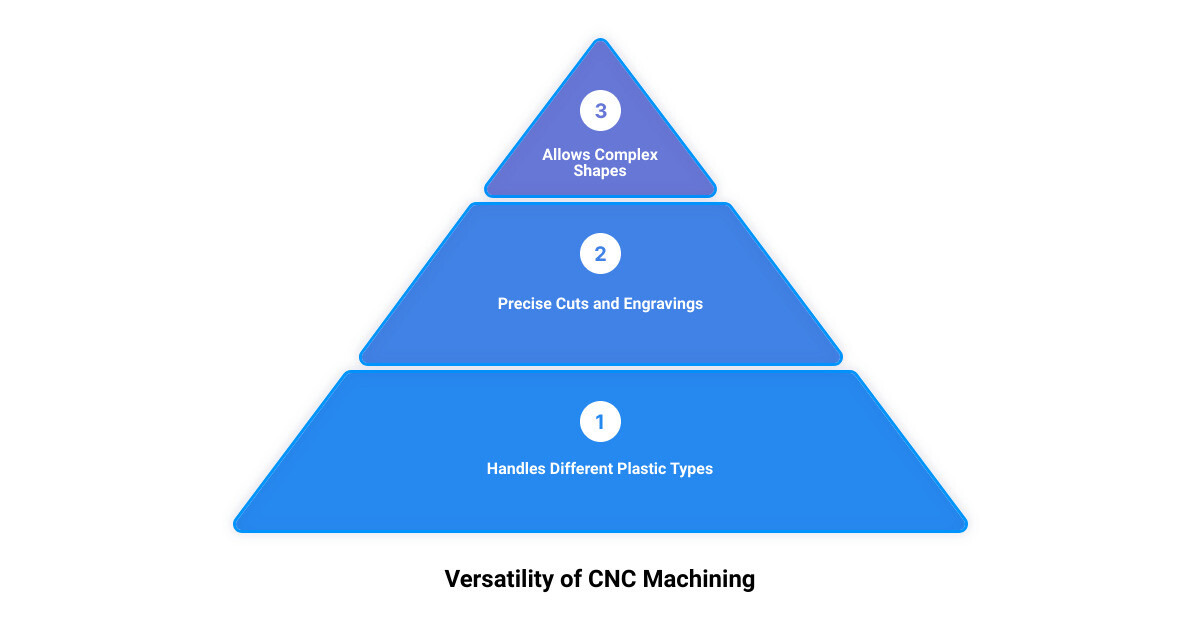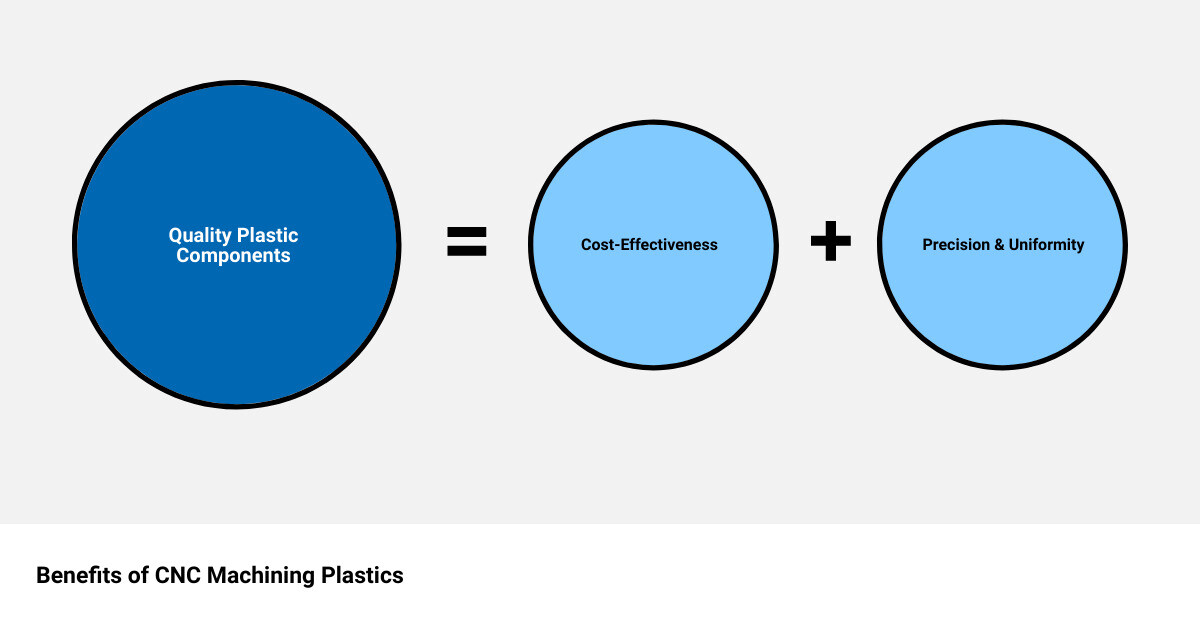Riding on the cutting edge of technological advancement, AS Precision Machining is more than just a machine shop. It’s a hub of innovation that brings precision manufacturing to the forefront of modern industrial applications. As a medium to high volume manufacturer of CNC machined components, AS Precision Machining has carved out a niche for itself, delivering consistent quality and high precision that industries across the globe have come to rely on.
Understanding Precision Machining
Before we delve deeper into the world of AS Precision, let’s take a moment to understand what precision machining is all about.
What is Precision Machining?
Precision machining is the process of creating intricate parts with exact dimensions using advanced machinery and techniques. The term ‘precision’ extends beyond just the manufacturing process and encompasses rigorous quality control checks carried out throughout the entire production process.
The Role of CNC in Precision Machining
At the heart of precision machining is Computer Numerical Control (CNC), a system that automates the manufacturing process. CNC machines follow instructions from sophisticated software to shape raw materials into complex parts. This technology allows for high accuracy, repeatability, and quality control in creating parts.
Precision vs Standard Machining: How Precise Can Machining Be?
Unlike standard machining, precision machining achieves tolerances within microns. This level of accuracy is vital in industries such as aerospace, where even the tiniest error can lead to catastrophic results.
In the next section, we’ll delve deeper into the process of precision machining, the advanced technology used by AS Precision Machining, and how it gives them an edge in the precision machining industry.
Understanding Precision Machining
When it comes to the manufacturing of intricate components, precision is the name of the game. But what exactly is precision machining? And how does CNC come into play? Moreover, how precise can machining be? Let’s answer these questions one by one.
What is Precision Machining?
Precision machining is a manufacturing process that uses advanced computer-controlled machine tools to create parts with exactness and consistency, meeting stringent specifications. A perfect blend of human precision and machine automation, this process is often the cornerstone of industries where even the smallest error can have significant repercussions.
In precision machining, the manufacturing process begins with a solid piece of material, often metal or plastic. The machine then gradually removes material from this piece until the final product has been achieved. Whether it’s the minute gear in a watch or a crucial part of an airplane engine, precision machining is often the method employed to create such complex shapes and sizes.
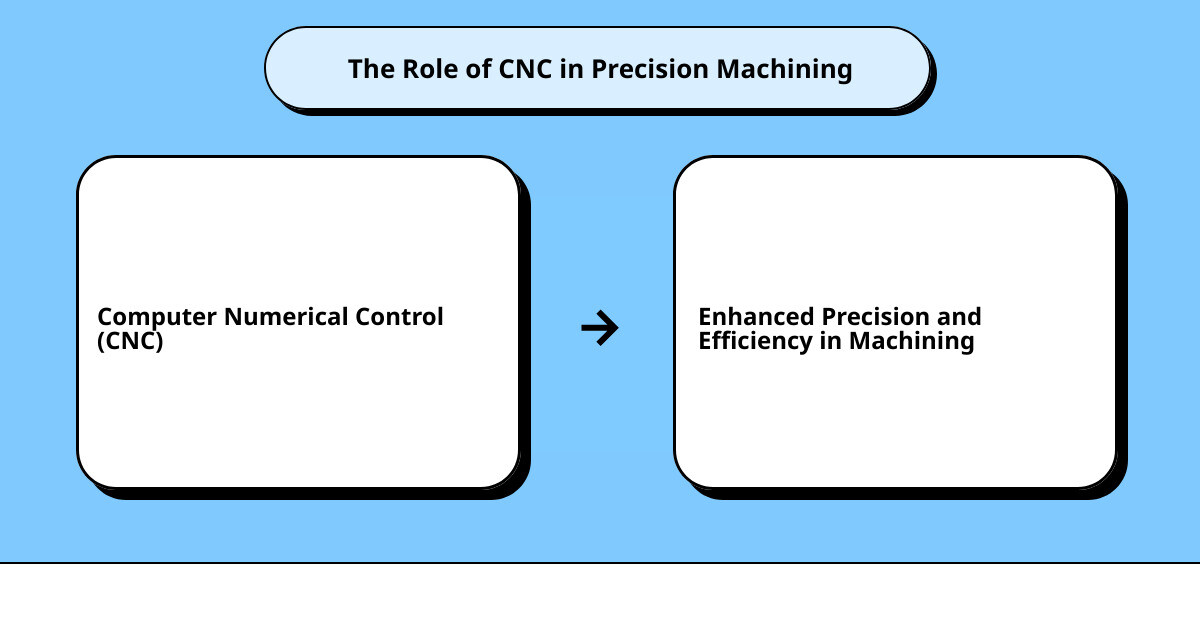
The Role of CNC in Precision Machining
Computer Numerical Control (CNC) plays a pivotal role in precision machining. CNC is a pre-programmed software that controls the movement of machinery, ensuring a high level of precision and accuracy in the manufacturing process.
One of the major advantages of CNC in precision machining is its ability to replicate intricate parts without any variation. This means that once the machine is programmed for a particular design, it can create that design repeatedly with exact precision. This level of repeatability is critical in industries such as aerospace and medical sectors, where uniformity and precision are paramount.
Precision vs Standard Machining: How Precise Can Machining Be?
The level of precision in machining can vary significantly depending on the requirements of the project. While standard CNC machining tolerances are typically set at +/- 0.127mm, precision machining can achieve tighter tolerances in the range of +/- 0.0254mm. This is roughly equivalent to the size of a human hair!
In the world of precision machining, such tight tolerances are not just a technological feat but a necessity. They ensure that every component fits perfectly into its place, ensuring the smooth operation of the final product. This level of precision is crucial in sectors like aerospace, automotive, and medical, where even the smallest flaw can have catastrophic consequences.
In the following sections, we will delve deeper into the process of precision machining and explore how AS Precision Machining leverages advanced technology and meticulous quality control to deliver superior precision machining services.
The Process of Precision Machining
Imagine constructing an intricate 3D puzzle, where every piece must fit together flawlessly. In essence, this is the challenge that precision machining overcomes, transforming raw materials into perfect, complex components. Let’s take a closer look at the steps in this process and the key roles of computer-aided design (CAD), computer-aided manufacturing (CAM), multi-axis CNC machining, and Swiss machining.
The Role of CAD and CAM in Precision Machining
Precision machining begins with the design phase. Designers use CAD software to create accurate 2D or 3D models of the desired part, based on rigorous specifications. This digital format is then converted into CAM format using CAM software, which provides the CNC machines with precise instructions on where and how to cut or mill the workpiece.
The synergy between CAD and CAM systems is a cornerstone of precision machining. They ensure that the final product is not just a rough approximation, but an exact manifestation of the initial design. With such a seamless integration of design and production, precision machining can deliver components with intricate geometries and tight tolerances.
Multi-Axis CNC Machining: Simultaneous Processes for Greater Precision
The beauty of precision machining lies not only in its accuracy but also in its efficiency. Multi-axis CNC machines can operate on several axes simultaneously, reducing setup time and minimizing the potential for human error during part repositioning.
Unlike standard three-axis CNC machines that operate on the X, Y, and Z linear axes, multi-axis machines incorporate additional axes for superior capabilities. They can access a workpiece from virtually any direction, achieving greater precision and detail. This simultaneous operation is a key advantage of AS Precision Machining, enabling us to deliver high-quality components swiftly and efficiently.
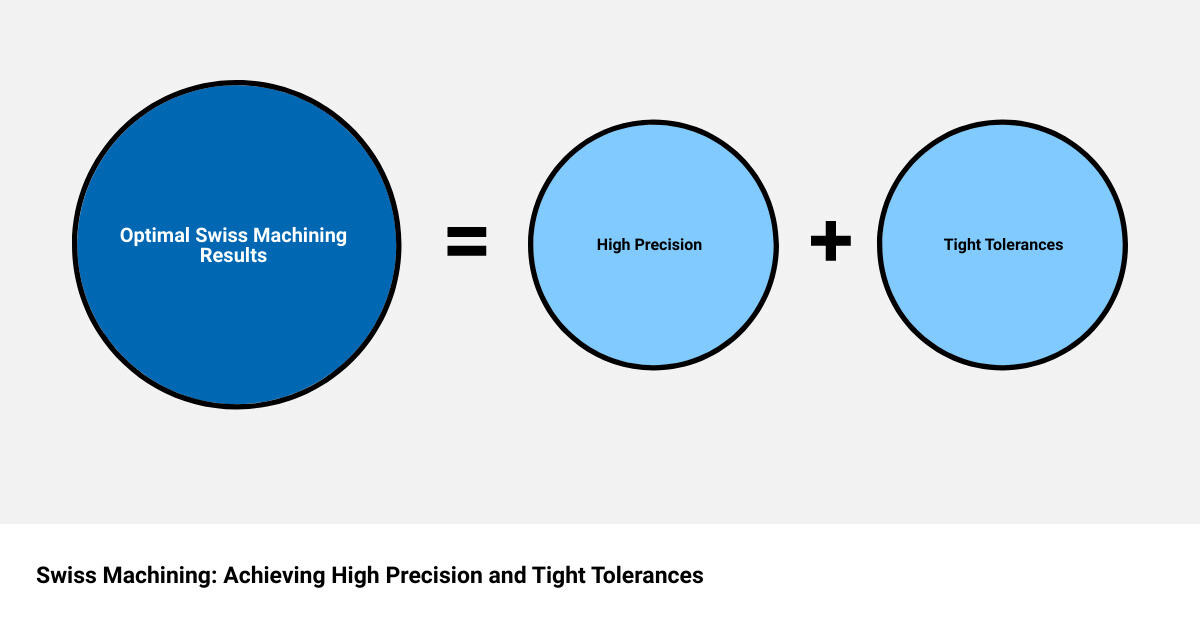
Swiss Machining: Achieving High Precision and Tight Tolerances
Swiss machining is a specific type of CNC machining renowned for its unmatched precision. Instead of the tool moving towards the stock, Swiss machining brings the stock to the tool. This approach facilitates extreme accuracy, achieving tolerances within ±0.0001 inches.
Moreover, once set up, Swiss machines can run unattended for extended periods, facilitating higher production volumes with less labor. The superior precision of Swiss machining makes it ideal for industries requiring parts with very tight tolerances, such as the aerospace, medical, and electronics sectors.
In summary, the process of precision machining is a perfect blend of advanced technology and meticulous attention to detail. It leverages CAD and CAM systems, multi-axis CNC machining, and Swiss machining to create parts that not only meet but exceed industry standards. With AS Precision Machining at the helm, you can expect nothing less than perfection.
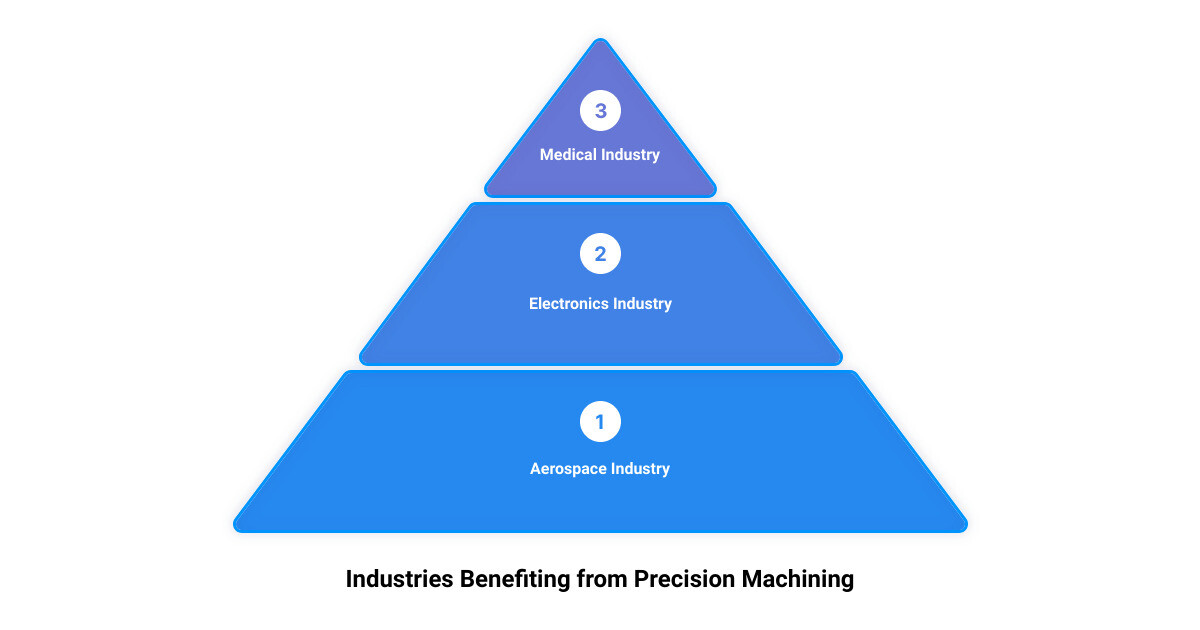
Industries Benefiting from Precision Machining
In the realm of manufacturing, few sectors exist that don’t stand to gain from precision machining. However, some industries, given their specific requirements and the complexity of their components, benefit significantly from this advanced method of manufacturing. Here, we delve into three such sectors – the aerospace, electronics, and medical industries, all of which rely heavily on AS Precision Machining for their intricate and high-precision requirements.
Aerospace Industry
The quest for the stars necessitates nothing less than impeccable precision. In the aerospace industry, precision machining isn’t just a desirable attribute, it’s a lifesaving requirement. In this high-stakes sector, the smallest error could have catastrophic consequences, emphasizing the significance of precision machining.
Aerospace components often have intricate geometries and require flawless functionality, safety, and reliability. Thanks to AS Precision Machining, complex aerospace parts can be crafted with the highest levels of accuracy, often within ±0.0001 inches, ensuring safety and reliability in every flight.
Furthermore, the integration of advanced technologies like multi-axis CNC machining has greatly enhanced the manufacturing capabilities in this industry, improving precision while reducing production time. This has led to a more efficient manufacturing process, underscoring the importance of precision machining in the aerospace industry.
Electronics Industry
Miniaturization is the order of the day in the electronics industry. As electronic devices shrink in size, the demand for components with complex geometries and tight tolerances escalates. Precision machining, with its ability to accurately shape materials, contributes to the development of smaller, more efficient electronic devices.
With the aid of Computer Numerical Control (CNC) technology, precision machining achieves a high degree of repeatability, ensuring that every component matches the original design specifications. This reliability is crucial to the performance of electronic devices, and it’s here that the expertise of AS Precision Machining shines.
Medical Industry
In the realm of healthcare, precision machining takes on a new level of importance. Medical devices and surgical tools crafted with precision can directly impact patient health, underscoring the critical role of precision machining in this industry.
Swiss machining, known for its superior precision, is commonly used to manufacture complex medical parts such as custom pins and surgical tools. The ability to work with a variety of materials, like stainless steel, aluminum, and titanium, allows for the creation of durable, high-quality medical devices. These devices can withstand the rigors of medical use, thanks to the top-tier quality services offered by AS Precision Machining.
In conclusion, whether it’s launching rockets into space, powering our digital lives, or saving lives in the operating room, precision machining plays a pivotal role across various industries. With AS Precision Machining leading the charge, industries can be assured of components that meet and exceed their stringent standards.
Materials Used in Precision Machining
When it comes to the art and science of precision machining, the choice of material plays an indomitable role in the quality and functionality of the final product. The suitability of a material is determined by its workability, durability, and the specific requirements of the application it’s destined for. Let’s take a closer look at the common materials utilized in precision machining.
Aluminum
Aluminum, known for its lightweight yet strong nature, is a preferred material in precision machining. It’s favored across various industries such as aerospace and electronics, thanks to its excellent machinability. Aluminum stands up well to CNC machining processes, allowing for the precise fabrication of complex shapes. Companies like TMC Technologies often work with aluminum alloys such as 6061-T6 and 7075-T7.
Brass
Brass, an alloy of copper and zinc, is another material frequently used in precision machining. Its low friction, excellent heat conductivity, and corrosion resistance make it an ideal choice for manufacturing gears, valves, and fittings. Brass’s easy machinability also makes it a top pick for creating intricate designs and shapes.
Stainless Steel
Stainless steel is a popular choice for precision machining due to its high strength, resistance to corrosion, and excellent heat resistance. Its ability to withstand extreme conditions makes it ideal for use in a wide variety of industries, including automotive, aerospace, and medical equipment manufacturing. Precision machining with stainless steel requires specialized tools and techniques to ensure accuracy, making the services of a knowledgeable manufacturer like AS Precision Machining invaluable.
Titanium
Titanium and its alloys are highly sought after in precision machining. Known for its high strength-to-weight ratio and corrosion resistance, titanium is commonly used in the aerospace and medical industries. However, titanium requires advanced precision machining techniques to maintain accuracy and prevent damage during the machining process.
Exotic Alloys
Exotic alloys, which often include elements such as nickel, cobalt, and chromium, are also used in precision machining applications that require exceptional performance under extreme conditions. These materials, while challenging to work with, provide superior durability and can withstand high temperatures and pressures.
In essence, the choice of material in precision machining is a critical aspect that determines not just the workability of the part but also its longevity and performance in its intended application. Whether it’s aluminum, brass, stainless steel, titanium, or exotic alloys, each material brings its unique properties and machining requirements, underlining the importance of expertise and experience in delivering high-quality, accurate, and durable components.
AS Precision Machining: A Closer Look
Stepping into the world of precision machining, one name that resonates with efficiency and precision is AS Precision Machining. Known for their expertise, advanced technology, and stringent quality assurance, AS Precision has made a significant impact on global industries.
The Expertise of AS Precision Machining
With a foundation that boasts over 50 years of combined machining expertise, AS Precision Machining has carved a niche in the manufacturing sector. This organization is not just another machine shop, but a medium to high volume manufacturer of CNC machined components. Their expertise extends to milling, turning, boring, tapping, broaching, and screw-machine work, tackling projects of all shapes and sizes.
The State-of-the-Art Technology Used by AS Precision Machining
AS Precision doesn’t just rely on their expertise. They also leverage the latest machining technology to deliver precise manufacturing. Their facility in Mississauga, Ontario, Canada, is equipped with state-of-the-art technology, including multiple CNC lathes, CNC mills, and Screw Machines. This sophisticated equipment, combined with their commitment to investing in the latest machining equipment and tooling, ensures a lower cost of production and faster machining time.
Quality Assurance at AS Precision Machining
Quality control and assurance play a pivotal role in precision machining. AS Precision understands this, with a fully equipped quality assurance lab to support client quality requirements. Their entire manufacturing process is geared towards meeting strict international quality standards, like the AS9100. They ensure all geometries are verified by coordinated measuring machines for precision verification, thus ensuring the components meet the strict functional and regulatory requirements of various industries.
The Impact of AS Precision Machining on Global Industries
The impact of AS Precision extends beyond its facility’s walls. Components manufactured at AS Precision have found their way into companies across the globe, contributing to various industries’ growth and technological advancement. By providing high-quality, precision-machined components, AS Precision is not just a supplier but a partner driving global industries forward.
In conclusion, AS Precision Machining exemplifies the perfect blend of expertise, advanced technology, and quality assurance. Their dedication to precision machining has made them a trusted name in the manufacturing world, contributing significantly to global industries. As we venture further into the realm of precision machining, the role of companies like AS Precision will only become more prominent, driving innovation and precision in manufacturing.
TMC Technologies: A Partner in Precision
When it comes to precision machining, partnering with a reliable and experienced manufacturer is essential. TMC Technologies is one such partner that has proven its mettle in the field of CNC Precision Machining.
The Role of TMC Technologies in CNC Machining
TMC Technologies, a stalwart in the industry, has been instrumental in redefining the standards of CNC components manufacturing. With a history steeped in innovation and customer satisfaction, TMC offers a comprehensive range of services from design and CAD services to fabrication and assembly, and of course, precision machining. Equipped with both 3 and 4 axis machinery in vertical and horizontal configurations, TMC Technologies showcases an impressive flexibility to meet customer needs based on design and volume.
Their capabilities extend to CNC lathe operations and a collection of secondary equipment to support their machining and manufacturing, including heat treating. This ensures that they deliver top-tier precision CNC components that meet the most stringent specifications, ensuring the longevity and optimal performance of your equipment.
The Unique Selling Proposition of TMC Technologies
What truly sets TMC Technologies apart is their commitment to quality and their willingness to go the extra mile to ensure customer satisfaction. Each service they offer undergoes rigorous quality control checks throughout the entire production process. They specialize in working with a variety of materials, including aluminum alloys, brass, titanium, stainless steel, and plastics, opening up a vast range of possibilities for their customers. With access to the latest automated technologies, their machining services are both efficient and cost-effective, ensuring that you receive the best value for your investment.
The Additional Services Offered by TMC Technologies
Going beyond just manufacturing CNC lathe parts, TMC Technologies offers a wide range of additional services. These include grinding, heat treating, light fabrication/assembly, and various other secondary operations. This extensive suite of services ensures that all your machining needs can be met under one roof, saving you time and resources.
Moreover, TMC Technologies understands the urgency that often accompanies the need for precision parts. As such, they strive to deliver short lead times without compromising the high-quality workmanship that they are known for.
In conclusion, TMC Technologies is not just a supplier, but a partner that understands your needs, values quality, and delivers precision. This dedication to excellence makes them a leading name in the world of precision machining parts manufacturing.
Conclusion: The Future of Precision Machining with AS and TMC Technologies
The future of precision machining shines brightly, guided by industry pioneers like AS Precision Machining and TMC Technologies. As we navigate this exciting era of innovation, these companies are not just witnessing the future; they are actively shaping it.
AS Precision Machining: A Legacy of Excellence
With over 50 years of combined machining expertise within their senior management staff, AS Precision Machining is an industry stalwart. Their commitment to delivering precisely manufactured components using state-of-the-art technology has made them an indispensable partner for companies worldwide. This dedication to precision and quality positions them squarely at the forefront of the industry, leading the future of precision machining.
TMC Technologies: Driving Innovation
TMC Technologies, with over 30 years of experience in precision machining services, is a beacon of innovation. Their commitment to embracing advanced automation techniques and the integration of cutting-edge technologies like machine learning, artificial intelligence, and 5-axis CNC machines is driving the future of high precision CNC machining. Furthermore, their adherence to international quality standards like the AS9100 underscores their dedication to delivering quality products that meet the rigorous demands of diverse industries.
A Collaborative Effort
The future of precision machining isn’t just about technology; it’s also about people and partnerships. The collaboration between AS Precision Machining and TMC Technologies demonstrates the synergies that can be achieved when experience, expertise, and a shared commitment to quality come together.
Their teams of highly trained engineers and technicians are dedicated to maintaining rigorous quality control checks throughout the production process. They understand that modern software packages like Computer-aided Design (CAD) and Computer-aided Manufacturing (CAM) are tools that augment the value of their skilled professionals. And these aren’t just operators; they’re problem solvers and innovators, navigating the complexity of modern machining tools, automation, and strict regulatory guidelines to produce high-quality CNC machined parts.
Driving the Industry Forward
As we look towards the future, it’s clear that precision machining will continue to be a fundamental pillar of numerous industries – from aerospace to electronics and medical sectors. And companies like AS Precision Machining and TMC Technologies will continue to lead the way, making the future of precision machining a reality today.
In conclusion, the future of precision machining is promising, driven by the expertise, technological advancements, and commitment to quality displayed by AS Precision Machining and TMC Technologies.


